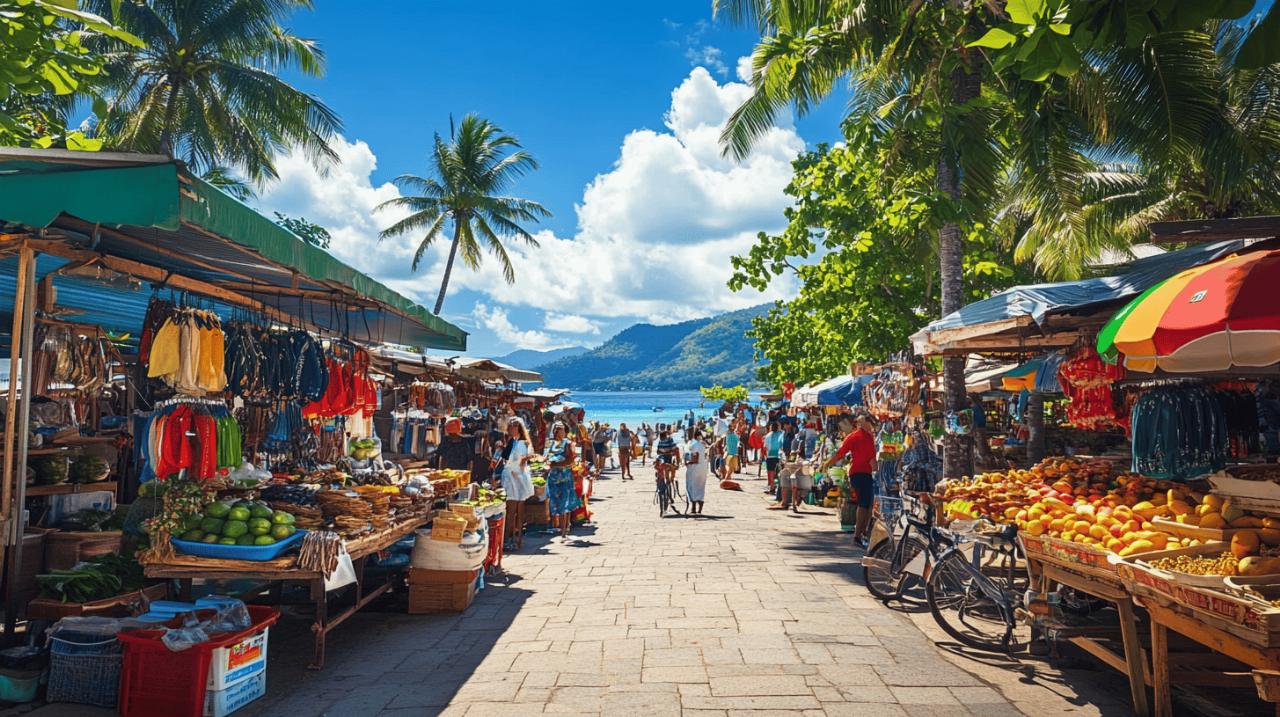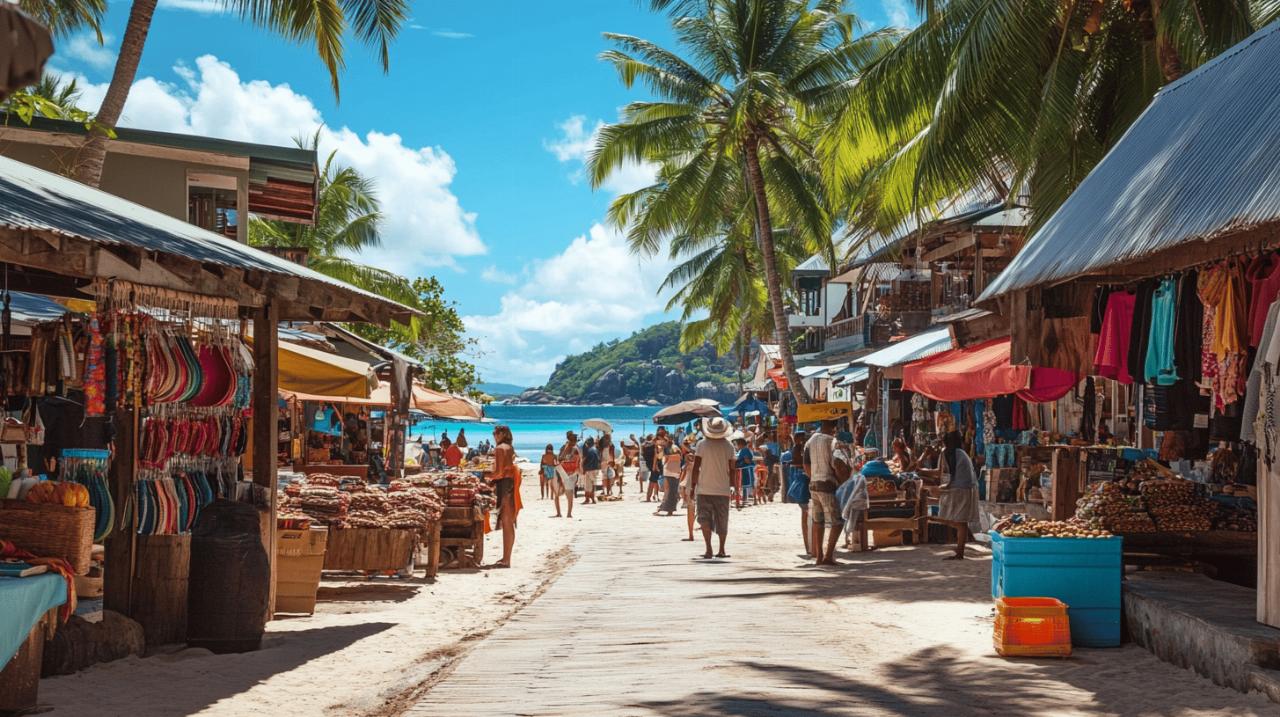Cost of Living in Seychelles: What Expats Need to Know About Daily Expenses and Hidden Financial Challenges
Dreaming of swapping the British weather for the paradise shores of Seychelles? Many are lured by the promise of turquoise waters, white sand beaches, and a slower pace of life. However, before you trade in your wellies for flip-flops, it's crucial to understand that life in this island nation comes with a distinct price tag. The cost of living in Seychelles is notably high, and for British expatriates accustomed to certain standards and conveniences, navigating daily expenses requires careful planning and a realistic budget. This guide will walk you through the key financial considerations, from securing a roof over your head to managing the often overlooked monthly outgoings that can quickly add up.
Housing Costs and Accommodation Options for Expatriates
Finding suitable accommodation is likely to be the single largest item in your monthly budget, and it's an area where Seychelles can prove surprisingly expensive. The rental market presents a wide spectrum of choices, from luxurious beachfront villas to more modest flats inland, but securing a comfortable home invariably demands a significant financial commitment. Understanding the nuances of this market and the expectations of local landlords is essential for anyone planning a move.
Rental market realities: from beachfront villas to budget-friendly flats
The allure of waking up to the sound of the ocean is strong, yet it's precisely these beachfront or coastal properties that command premium rents. Properties in popular areas or those offering direct access to the beach can set you back considerably, with monthly rents reflecting the desirability of the location and the standard of the dwelling. For those willing to live further from the coast or in areas less frequented by tourists, more budget-friendly options do exist, though they require diligent searching. House rents in Seychelles are, as a general rule, expensive compared to many other destinations. The size of the property, the availability of amenities such as air conditioning and a garden, and proximity to the capital Victoria all influence the final price. Expatriates often find themselves competing not just with other foreign nationals but also with locals and businesses seeking accommodation for staff, which can drive prices upward. It's advisable to start your search well in advance of your intended move date and to use reputable estate agents or online platforms to get a sense of the market.
Deposit Requirements and Landlord Expectations in Seychelles Property Market
Beyond the monthly rent, prospective tenants must prepare for upfront costs that can be substantial. Landlords in Seychelles typically require a deposit, often equivalent to one or two months' rent, which is held as security against any damage or unpaid rent. Additionally, it's common practice to pay the first month's rent in advance, meaning you could be parting with the equivalent of three months' rent before you've even moved in. Clear communication with your landlord is vital to ensure both parties understand the terms of the lease, including the length of the contract, the notice period required for termination, and what is included in the rent. Some properties come furnished, which can be a relief for those moving with minimal belongings, while others are unfurnished, necessitating further expenditure on furniture and household goods. It's also worth noting that foreign nationals, including British citizens, face certain restrictions when it comes to property purchase and require government approval, making renting a more straightforward option for many expatriates initially.
Food Shopping and Dining: Navigating Import Prices and Local Markets
Feeding yourself and your family in Seychelles presents a unique set of challenges and opportunities. The island nation relies heavily on imported goods, which inevitably inflates the cost of many everyday staples. However, by embracing local produce and understanding where to shop, expatriates can find ways to manage their food budget without compromising too much on quality or variety.
Supermarket Essentials Versus Local Produce: Where to Find the Best Value
Supermarkets in Seychelles stock a range of familiar brands and products, particularly those catering to the tourist and expatriate market. However, the convenience of finding items from home comes at a price, as imported goods such as apples, tomatoes, and onions can be surprisingly expensive. Buying water is also a necessity for most residents, adding another line to your weekly grocery bill. In contrast, local markets and smaller vendors offer a fantastic selection of tropical fruits when they are in season. Avocados, papayas, bananas, jackfruit, and mangoes can be found at very reasonable prices, and buying directly from local farmers not only supports the community but also provides you with fresher, tastier produce. Learning to cook with these local ingredients and adapting your diet to what is seasonally available is one of the most effective ways to reduce your food expenses. The key is to strike a balance, relying on supermarkets for essentials that are not grown locally but making the most of the abundant and affordable fresh produce available at markets. It requires a shift in shopping habits and meal planning, but it can make a significant difference to your overall cost of living.
Restaurant Culture and Eating Out: Balancing Treats with Budget Constraints
Seychelles boasts a vibrant dining scene, with restaurants offering everything from fresh seafood to international cuisine. However, eating out in Seychelles is not a cheap affair, and it's an area where costs can quickly spiral if you're not mindful. Restaurants are expensive, as are hotels, and even a casual meal can represent a significant portion of your daily budget. Interestingly, local beer, while cheap when purchased from a supermarket, becomes considerably more expensive when ordered in a restaurant or bar, highlighting the markup associated with dining out. For expatriates used to frequent restaurant visits, this can be a challenging adjustment. Eating out options are also somewhat limited, particularly in the evening and especially if you live outside the main tourist areas or the capital Victoria. This means that planning meals at home becomes not just a financial necessity but also a practical one. Treating yourself to a meal out should be viewed as an occasional indulgence rather than a routine, allowing you to enjoy the culinary offerings of the islands without derailing your budget.
Transportation and Mobility: Understanding Your Options and Associated Costs
 Getting around Seychelles, particularly if you live outside the immediate vicinity of Victoria, can present a genuine challenge for expatriates. The infrastructure and public transport options are not as developed or convenient as in many Western countries, and this has significant implications for your daily life and your budget. Understanding the limitations and costs associated with different modes of transport is crucial for planning your move.
Getting around Seychelles, particularly if you live outside the immediate vicinity of Victoria, can present a genuine challenge for expatriates. The infrastructure and public transport options are not as developed or convenient as in many Western countries, and this has significant implications for your daily life and your budget. Understanding the limitations and costs associated with different modes of transport is crucial for planning your move.
Public transport limitations and private vehicle ownership considerations
Public buses do operate in Seychelles, providing a basic level of connectivity between different areas and the capital. However, services are infrequent, especially for those living in more remote or hilly areas, making them an unreliable option for commuting or running errands on a tight schedule. Transport can be difficult if you live far from Victoria, and relying solely on public transport can severely restrict your mobility and independence. Taxis are available, but they are expensive, and frequent use can quickly become unaffordable. As a result, many expatriates opt to own or rent a private vehicle, which offers the freedom and convenience to explore the islands at your own pace. British citizens can drive in Seychelles for three months using their UK licence, which is valid as driving is on the left, just like in the UK. After this period, you will need to obtain a Seychelles driving licence. While a car provides undeniable advantages, it also comes with its own set of costs that must be factored into your budget.
Petrol Prices, Insurance Premiums, and Maintenance Expenses for Motorists
Owning a car in Seychelles is not just about the initial purchase or rental cost; ongoing expenses can be substantial. Petrol prices are a significant consideration, and while they fluctuate, they can be higher than in the UK, adding to your monthly outgoings. Driving in Seychelles can also be exhausting due to winding roads and traffic, which may lead to higher fuel consumption and increased wear and tear on your vehicle. Insurance premiums are another essential cost, and securing comprehensive cover to protect yourself and your vehicle is advisable given the road conditions. Maintenance expenses, from routine servicing to repairs necessitated by the challenging terrain, should also be anticipated. Parts for vehicles may need to be imported, which can be both costly and time-consuming. Before committing to vehicle ownership, it's prudent to research the various costs involved and to ensure that it fits comfortably within your overall budget, weighing the benefits of independence against the financial burden.
Utilities, healthcare, and hidden monthly expenses expatriates often overlook
Beyond the obvious costs of rent, food, and transport, there are a number of recurring monthly expenses that can catch expatriates off guard if they are not anticipated. Utilities and healthcare are two areas where costs can be higher than expected, and failing to budget for them can lead to financial strain.
Electricity bills, water charges, and climate-related consumption patterns
Living in a tropical climate means that air conditioning is often a necessity rather than a luxury, particularly during the hot and humid period from November to April. However, running air conditioning units can lead to surprisingly high electricity bills, which can be a shock for those accustomed to more temperate climates where such systems are used sparingly. Water charges also contribute to utility costs, and while drinking water quality from the tap may vary, many residents opt for bottled water, adding another regular expense. Seychelles has both a wet and a dry season, with rain occurring throughout the year, but the dry season from May to October is generally cooler, which can help reduce reliance on air conditioning. Being mindful of your energy consumption, using fans where possible, and ensuring your accommodation is well-ventilated can help keep electricity bills in check, but it's essential to budget for utility costs that are likely to be higher than you might anticipate in a cooler climate.
International health insurance requirements and private medical care costs
Healthcare is another critical area that demands careful consideration and planning. The UK does not have a double taxation agreement or reciprocal healthcare agreements with Seychelles, meaning that British expatriates cannot rely on free or subsidised medical services as they would at home under the NHS. Essential health services are free for Seychellois, but foreign nationals usually pay for healthcare. It is therefore strongly advised that expatriates take out comprehensive international health insurance to cover medical expenses. While public healthcare facilities do exist, the standard of care and the availability of specialist services may not always meet the expectations of those accustomed to the NHS or private healthcare in the UK. Private medical care is available in Seychelles, offering a higher standard of service and access to more advanced treatments, but this comes at a significant cost. Before relocating, it's essential to arrange suitable medical insurance that covers not just routine care but also emergency treatment and medical evacuation if necessary. Additionally, it's wise to check if your regular medications are available and legal in Seychelles, as obtaining certain prescriptions can be difficult or require advance planning. Dial 999 for emergencies, mirroring the system in the UK, which can provide some reassurance in urgent situations. Budgeting for health insurance premiums and potential out-of-pocket medical expenses is a vital part of financial planning for life in Seychelles.
